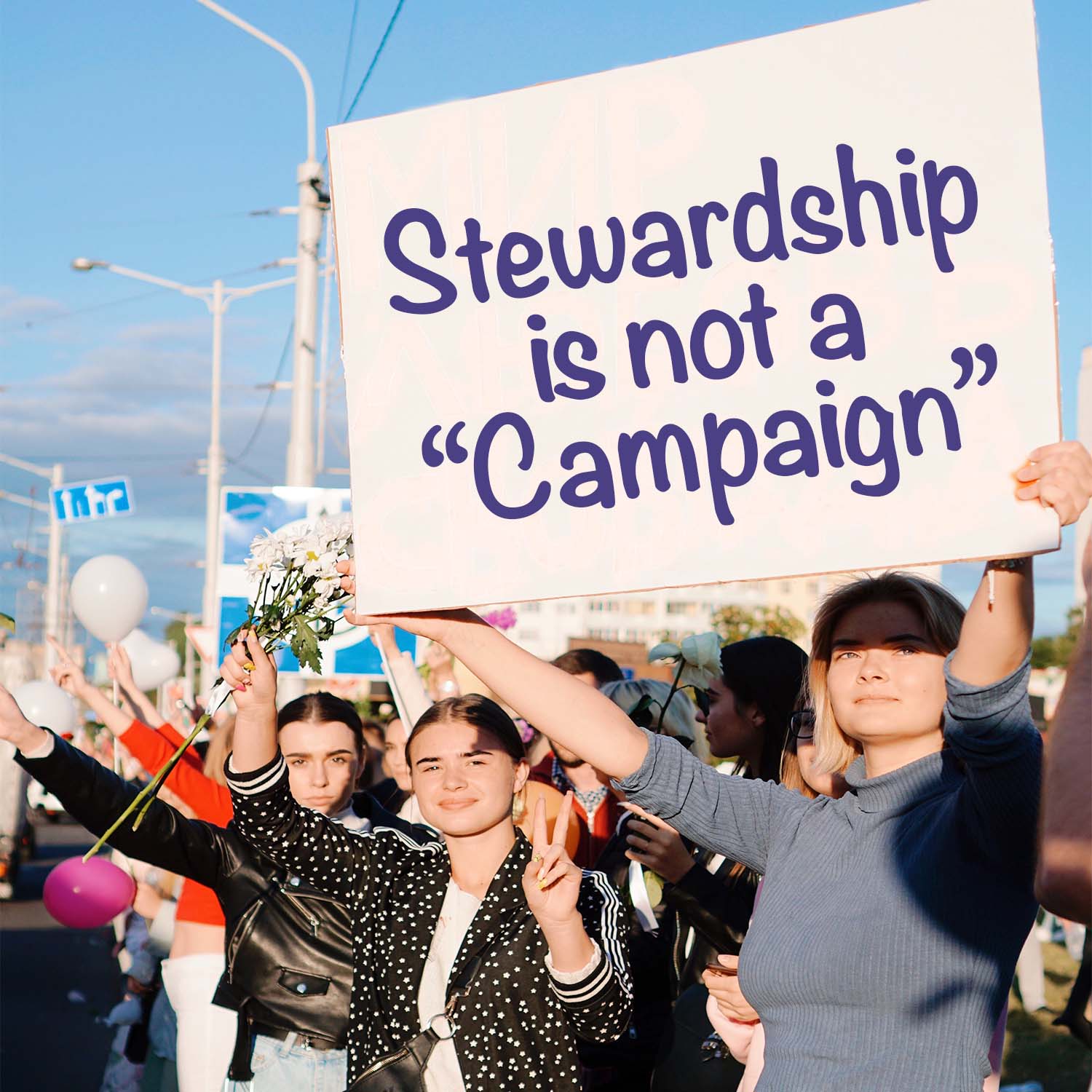

As fall rapidly approaches, many communities of faith are making plans for “a stewardship campaign” (CRINGE!). If you’re one of them, here are four important areas to consider before you go any further:
Current trends
- Be aware of inflation’s impact on everyone. If the current rate holds, giving will need to increase by 9% for you to maintain your current level of ministry. You may think, “We’ll have to cut back,” but ministry funding is about impacting people’s lives through Jesus, so the question to answer is, “How can we grow giving rather than reduce spending?”
- Consider people’s values, money motivations (does money mean freedom, security, power, and/or love?), and experiences (generationally, within the church, in the world), as well as the theology of stewardship taught in your church (hopefully that includes that our identity as God’s stewards is grounded in trust, gratitude, generosity, and love). All these things impact a person’s decision to give God their time, talent, treasure, and more.
- Be clear on how money is being spent this year: what ministry it is accomplishing, how expenses are different from last year’s, and how the church’s use of money lines up with its mission. Begin casting a vision for 2023: “Here’s how God is calling us and how our collective stewardship will help us answer that call in the year ahead.”
- Finally, how much do you know about people’s giving habits? Identifying trends will help as you make decisions about inviting generosity. If you ask people to make a financial commitment, how many do so each year? Do you have people who used to make a commitment and have stopped, but who still give? How many people never give money but are active in the life of the church? Look at the last five years and see how the numbers can guide your steps for 2022-2023.
Financial invitation
- Please, please, please don’t use the words “stewardship campaign.” “Campaign” comes from a word that means “field” or “open country,” but in today’s world, we often think of politics or military actions when we hear it. Moreover, “stewardship campaign” minimizes the discipleship and faithfulness of stewardship. The goal of most campaigns is to win; the “goal” of our lives as stewards is for God’s work to be done in us and through us. Stewardship should be a year-round part of your ministry.
- Also, if you still have a “Stewardship Sunday,” stop immediately. This practice reinforces unhealthy mindsets and habits around living generously, implying that stewardship is only when we give money to the church once a year (the church wanting something from us rather than God wanting something FOR us) and not what we do with all that God has entrusted to us ALL THE TIME. We wake up. We are stewards. We go about our day. As stewards. We go to bed. Still stewards. We were created in God’s image to be generous. Whether we choose to be is up to us, but those choices are made all the time, not just on one Sunday when our communities of faith hope we will give money.
- If you are going to ask people to make a financial commitment to your church for 2023, it’s an invitation. And as you consider extending this invitation, first make sure you’re clear about why you’re doing it. Why does your church ask for commitments? What does it mean, not just for the church, but also for the individual, as a follower of Christ? Also, do people know who sees their commitments, what they should do if they can’t fulfill them, how they can make payments, etc? Clarity is essential.
- If your church doesn’t invite people to make financial commitments, consider doing so just for a month. You’re already budgeting without knowing how much money will be given, so taking this step won’t impact that process. It will impact the congregation as people trust God to provide and make a promise on how much they intend to give. I’ve heard a lot of church leaders say, “We’re ok financially without asking people to make a commitment.” That may be true; just make sure you then have other practices that encourage people to grow in their understanding of financial stewardship.
Conversation
Most people know “what the church does,” but do they understand why it matters? Sharing stories of impact and lives changed is a critical step as you form and nurture faithful and generous stewards. Consider using the following questions as conversation starters for small groups, Sunday School class discussions, or for interviews conducted during worship or recorded as videos to share ALL YEAR LONG.
Answer these questions yourself and begin to experience the joy that comes from reflecting on your own identity as God’s steward!
- What motivates your giving spirit?
- What ministry is most hopeful or exciting to you? Why?
- “I feel most alive when I use my gift of ________ to ____________.”
- I give ______ (time, talent, or treasure) to this church/ministry because ___________.”
- What headline or article about our community of faith would you like to read at the end of 2023? Why?
- If money were no object, what service to our neighborhood/neighbors would you hope to begin? Why?
- What does our collective stewardship accomplish? What have we given why does it matter?
Resources
- You aren’t on this stewardship journey alone! Your Moravian Ministries Foundation offers a variety of resources, such as a planning template, thematic ideas for framing stewardship conversations and invitations, recurring giving promotion materials, and much more. They are all available here.
- If you need a human resource, MMFA has that too! I’d be happy to connect with you, hear what’s going on in your ministry setting, and see how we can partner with you on stewardship. Give me a call (336-725-2589) or email me







